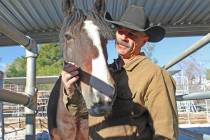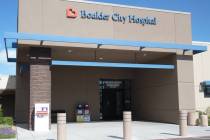Detailed observations can aid officers
Crimes are frequently solved as a result of a partnership between the community and its police department. This partnership is vital in keeping our community safe from criminals who look to take advantage of our citizens.
Being a good witness means not placing yourself, or others, in danger. Remain calm enough to call the police and provide critical information. It’s best not to confront or get involved in a conflict with a suspect but to be a good witness and call the police with valuable information.
The type of crime committed won’t tell you what type of suspect you are dealing with. Never get between a suspect and his/her escape route. If you see a crime in progress, call 911, if possible, and without endangering yourself, continue to monitor any activity you can observe.
A police dispatcher will answer 911 and will ask a series of questions relating to the activity you’re witnessing. Being able to quickly articulate your location will assist the officers in their response.
During this stressful time it’s important for you to remain calm so you can clearly answer the dispatcher’s questions. Listen to the police dispatcher for direction and guidance. Some of the questions may not seem pertinent to you, but dispatchers are trained to know exactly what information the officers need to respond quickly and safely. This means that a dispatcher may need to interrupt you while you’re relaying information.
It is important that during emergencies, your answers are direct and brief. Keep in mind that during emergencies officers are usually dispatched by a second dispatcher as the information is obtained by the dispatcher taking your call. The faster he or she can obtain the necessary information from you, the faster it can be relayed to the officers responding.
The dispatcher may let you know when an officer has arrived on the scene. If the suspect(s) leave before you see police officers, tell the dispatcher and let him or her know the direction and method of travel.
When you call to report a crime in progress, the type of information that the dispatcher will likely ask you to supply will include the following:
Suspect(s):
■ Male/female
■ Race or ethnicity (Caucasian, Asian, Middle Eastern, Hispanic, African-American)
■ Height: Sometimes it’s hard to judge so you may need to use a vertical object to compare the height with. Officers can later look at this object and determine a height.
■ Weight/build: slim, heavy, muscular, etc.
■ Hair: color and style of hair (blond, brown, etc., and short, long, curly, etc.)
■ Facial features: clean shaven, mustache, beard, etc.
■ Clothing description: type and color of shirt (short sleeve, long sleeve, striped, solid, etc.) and pants (jeans, long shorts, etc).
■ Any other unusual characteristics or distinguishing features of the subject (tattoos, scars, glasses, etc.)
■ Note any weapons involved in the crime (long gun, hammer, knife, crow bar, etc.)
Suspect vehicle:
■ Vehicle make: Chevrolet, Ford, Honda, etc.
■ Model – Mustang, Impala, etc.
■ Vehicle style: two-door, four-door, wagon, hatchback, SUV, van
■ Vehicle color
■ Vehicle license plate
■ Any identifiable marks (damage), bumper stickers, custom rims, spoiler, etc.
Remember, your safety comes first. Don’t be afraid to call the police department. Crime prevention is everyone’s responsibility. With your help, we can keep our community safe.
Tina Ransom is a dispatcher with Boulder City Police Department. She is coordinator of the Boulder City Citizen’s Academy.











